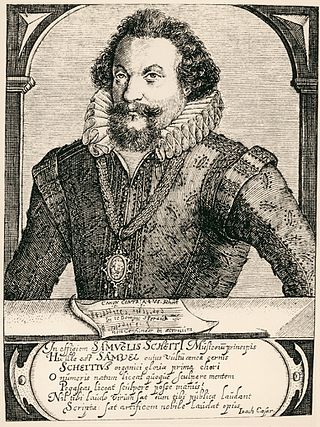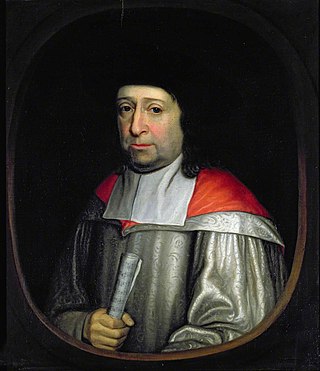Related Research Articles

Maurice Greene was an English composer and organist.

William Boyce was an English composer and organist. Like Beethoven later on, he became deaf but continued to compose. He knew Handel, Arne, Gluck, Bach, Abel, and a very young Mozart, all of whom respected his work.

Samuel Scheidt was a German composer, organist and teacher of the early Baroque era.
The year 1712 in music involved some significant events.

James Nares was an English composer of mostly sacred vocal works, though he also composed for the harpsichord and organ.
The year 1699 in music involved some significant events.
The following events in the field of music occurred in the year 1683.
Giovanni Battista Pescetti was an organist, harpsichordist, and composer known primarily for his operas and keyboard sonatas. Musicologist and University of California, Santa Barbara professor John E. Gillespie wrote that Pescetti "stylistically stands as a bridge between Alberti and Domenico Scarlatti".
The year 1673 in music involved some significant events.
The year 1666 in music involved some significant events.
Sir Philip Stevens Ledger, CBE, FRSE was an English classical musician, choirmaster and academic, best remembered as Director of the Choir of King's College, Cambridge in 1974–1982 and of the Royal Scottish Academy of Music and Drama from 1982 until he retired in 2001. He also composed choral music and played the organ, piano and harpsichord.

Christopher Gibbons was an English composer and organist of the Baroque period. He was the second son, and first surviving child of the composer Orlando Gibbons.
Edward Purcell (1689–1740) was an English organist and composer.
Edward Henry Purcell, organist, was the son of Edward Purcell and grandson of the English Baroque master, Henry Purcell. He was a chorister in the Chapel Royal in 1737. Upon the death of his father in 1740, he succeeded him as organist of St Clement, Eastcheap.
Cecilia Young was one of the greatest English sopranos of the eighteenth century, the wife of composer Thomas Arne, and the mother of composer Michael Arne. According to the music historian Charles Burney, she had "a good natural voice and a fine shake [and] had been so well taught, that her style of singing was infinitely superior to that of any other English woman of her time". She was part of a well-known English family of musicians that included several professional singers and organists. Young enjoyed a large amount of success through her close association with George Frideric Handel. She appeared in several of his oratorios and operas including the premieres of Ariodante (1735), Alcina (1735), Alexander's Feast (1736) and Saul (1739).
Anthony Young was an English organist and composer. He was part of a well-known English family of musicians that included several professional singers and organists during the 17th and 18th centuries.

Johann Wilhelm Hässler, was a German composer, organist and pianist.
Giovanni Andrea Fioroni was an Italian classical composer, maestro di cappella and organist born in Pavia in 1716, although he had studied music for fifteen years with Leonardo Leo in Naples. He composed many operas, oratorios and about 300 sacred vocal works in a contrapuntal style, many of them for large choirs.

Joseph Harris (1743–1814) was a composer and organist based in Ludlow and then Birmingham.
John Keeble was an English organist, composer and writer on music.
References
- ↑ Philip H. Highfill; Kalman A. Burnim; Edward A. Langhans (1993). "A Biographical Dictionary of Actors, Actresses, Musicians, Dancers, Managers & Other Stage Personnel in London, 1660-1800". Vol. 16. Southern Illinois University Press. p. 32. ISBN 9780809318032.